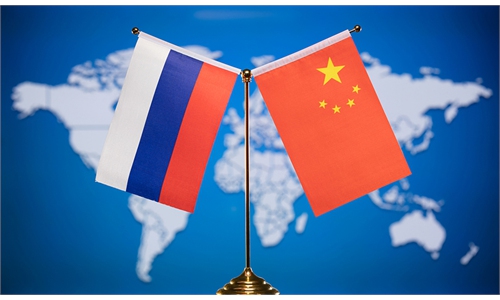Critics misunderstand China’s financial reform by saying ‘central bank has been sidelined’

Illustration: Chen Xia/Global Times
Following the Central Financial Work Conference held in October in Beijing, where Chinese policymakers emphasized the need to follow the centralized and unified leadership of the Communist Party of China (CPC) Central Committee over financial work, some Westerners interpreted it as "China sidelines its once-venerated central bank." Such a misreading is ridiculous, reflecting Western elites' serious lack of understanding of China's ongoing financial reforms.The Financial Times published an article this week, claiming that the influence of China's once-powerful central bank has diminished as Beijing steps up a drive to centralize CPC control over financial regulation. Citing analysts, the report said that a series of changes would diminish the central bank's clout over domestic policymaking as well as its role as a communication channel with global regulators and markets.
For those who hold similar views, it is recommended that they take a look at an article published by Pan Gongsheng, governor of the People's Bank of China (PBC), the central bank, on December 4. This article may be interpreted with reference to three factors.
First, China is fully aware of the challenges ahead. China's financial industry has rapidly developed in recent years, with a large scale and strong vitality; however, there are also problems and contradictions. The efficiency of China's financial services for the real economy is not high, and the financing structure needs to be optimized, as some enterprises hoard financial resources.
Financial disturbances and corruption persist, financial governance should be improved, and there are still risks and hidden dangers in the financial system.
Second, the purpose of rallying powerful forces is to solve difficult problems. To prudently handle issues in the financial field and promote the high-quality development of finance, it is necessary to continuously improve political awareness and enhance political judgment, understanding and execution.
Amid a complex and severe economic environment, focusing on solving difficulties and realizing the high-quality development of the financial industry requires adhering to the centralized and unified leadership of the CPC Central Committee.
Third, China is committed to transforming the political and institutional advantages of the CPC's leadership into efficient financial governance.
The power of China's central bank has not been weakened, but rather strengthened. Some Westerners claim that the central bank is being pushed to the sidelines as "China contends with slow post-pandemic growth and a mounting debt crisis hitting the property sector and local governments." This is completely wrong.
The CPC Central Committee's centralized and unified leadership is the fundamental guarantee for the development of the financial sector. China's ongoing financial reform reflects the CPC Central Committee's emphasis on financial work and its determination to solve difficult problems in the financial system.
It is precisely because the country is not afraid of facing challenges and trying to solve thorny issues that we need to concentrate resources to make breakthroughs, just like a boxer clenching his fists before landing a blow.
Efforts are needed to comprehensively strengthen the leadership of the CPC in the country's financial industries, which will become a key step to hedge financial risks and build China into a financial powerhouse.
The Central Financial Work Conference held in October stressed that China will remain committed to the path of financial development with Chinese characteristics and boost the high-quality development of the financial sector to provide strong support for fully building China into a strong country and achieving national rejuvenation through Chinese modernization.
The goal of building a financial powerhouse comes just in time, as the strategy serves as a stabilizer for preventing financial risks and maintaining financial security amid a difficult global economic environment.
China's influence in the global financial system is constantly increasing. Its ongoing financial reform may have spillover effects. In the process, there may be some misunderstandings between China and the West, which is normal, because many Westerners are still accustomed to using outdated Western economic concepts to interpret the fast-developing Chinese economy.
This time, misunderstanding of the central bank should remind them to respect basic facts, abandon prejudice and take a closer look at the story that is happening in China and its financial system with Chinese characteristics.
The author is a reporter with the Global Times. bizopinion@globaltimes.com.cn



